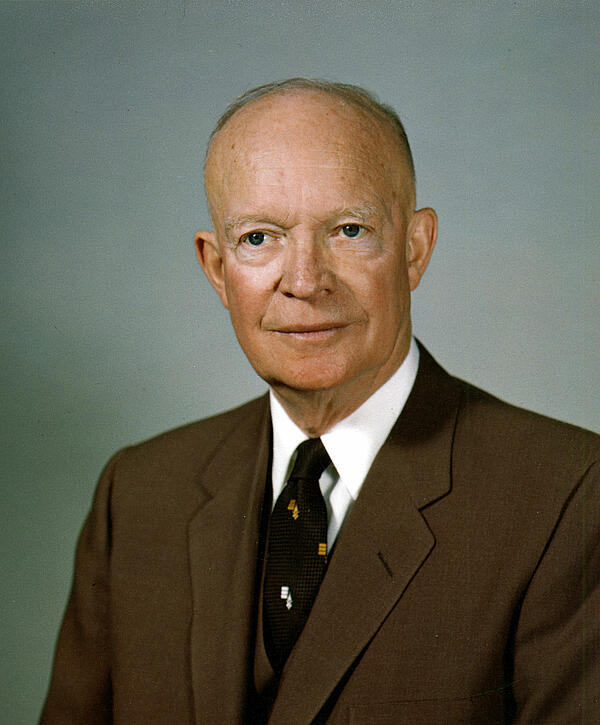Dwight Eisenhower and Suez
America and Great Britain clashed over the Suez Crisis in late 1956. In September, Dwight Eisenhower, the Republican President of America, wrote a strongly worded letter to Anthony Eden, the British Prime Minister.

“We have a grave problem confronting us in Nasser’s reckless adventure with the canal, and I do not differ from you in your estimate of his intentions and purposes. The place where we apparently do not agree is on the probable effects in the Arab world of the various possible reactions by the Western World. You seem to believe that any long, drawn out controversy will inevitably make Nasser an Arab hero. This, I think, is a picture too dark. I believe we can expect the Arabs to rally firmly to Nasser’s support if there should be a resort to force without thoroughly exploring and exhausting every possible peaceful means of settling the issue. Nasser thrives on drama. If we let some of the drama go out of the situation and concentrate upon deflating him through slower but sure processes (such as economic pressures, Arab rivalries, a new pipeline to Turkey, more oil for Europe from Venezuela. I assure you we are not blind to the fact that eventually there may be no escape from the use of force. But to resort to military action when the world believes there are other means available would set in motion forces that could lead to the most distressing results.”
Why did Eisenhower take this view? Several factors may have influenced America’s stance towards the Suez Crisis:
- America acquired relatively little oil through the Canal (around 15% of their national requirement in 1956). US investments in the Suez Canal Company were also negligible. The nationalisation of the canal would not have a significant economic impact on America.
- Eisenhower was gearing up to an election, scheduled for November 1956. He may have wanted to present himself as a man who could broker peace at an international level in a fragile region.
- Eisenhower may have feared a huge backlash from the Arab nations if Egypt suffered a humiliating defeat at the hands of the British, French and Israelis. This could potentially push Egypt towards Moscow. Other Arab nations might then follow. It was well known that the USSR coveted a permanent warm water naval base in the Mediterranean Sea for her Black Sea’s fleet. Nasser’s rejection of the West could increase Soviet influence in an important diplomatic zone. This fear was grounded in reality. Soviet money financed the dam at Aswan and the Egyptian military received Soviet equipment.
MLA Citation/Reference
"Dwight Eisenhower and Suez". HistoryLearning.com. 2026. Web.
